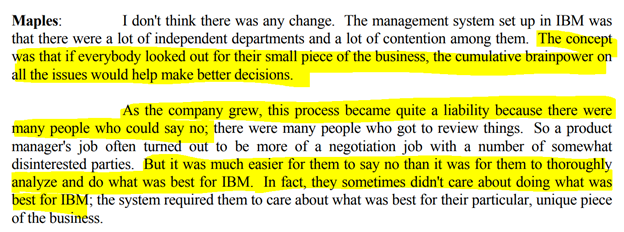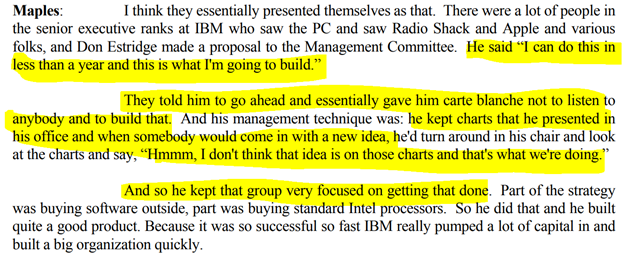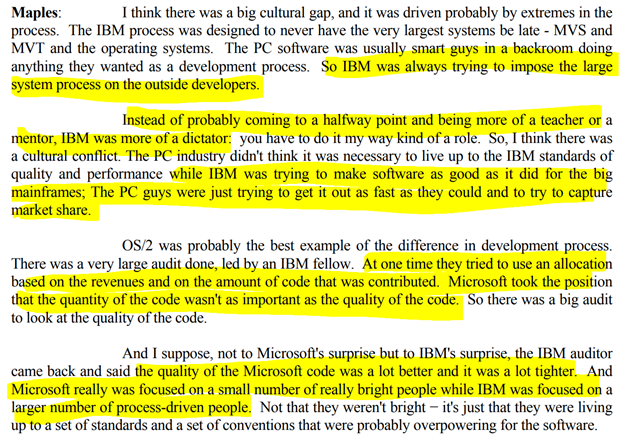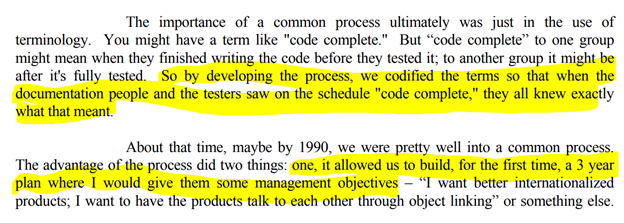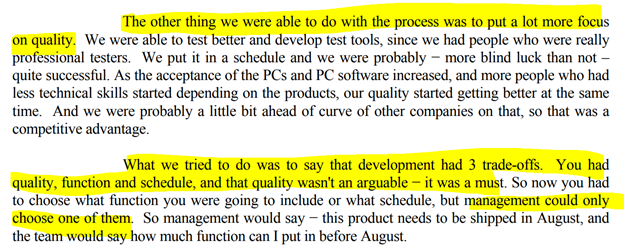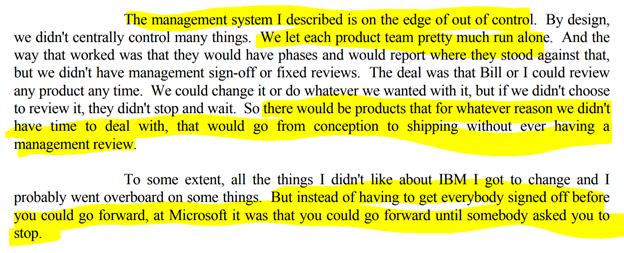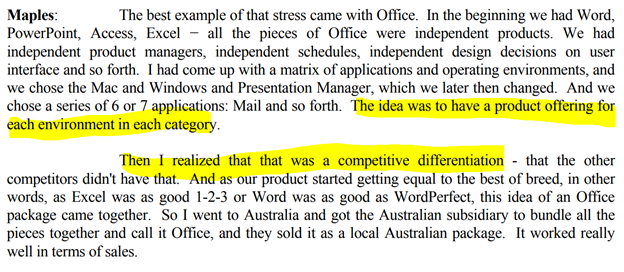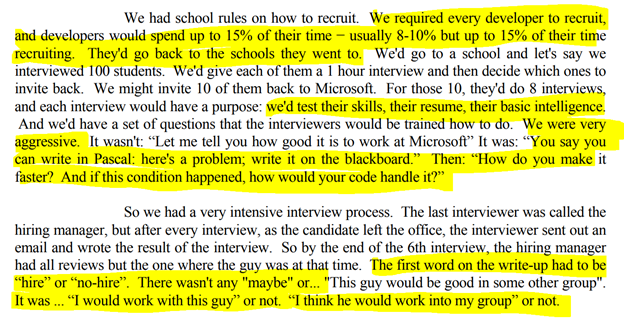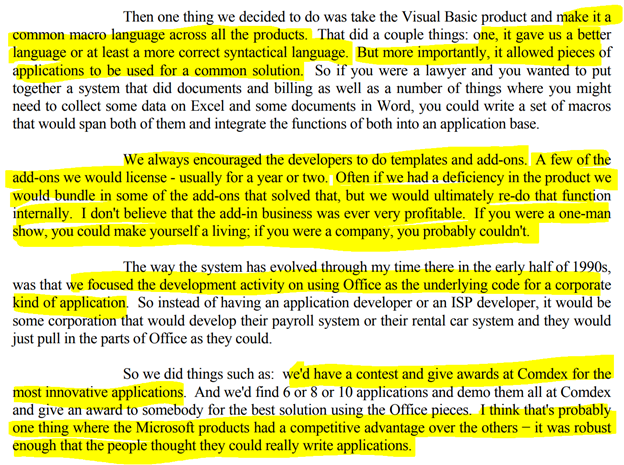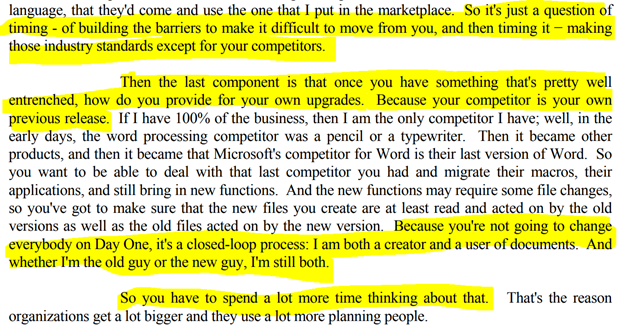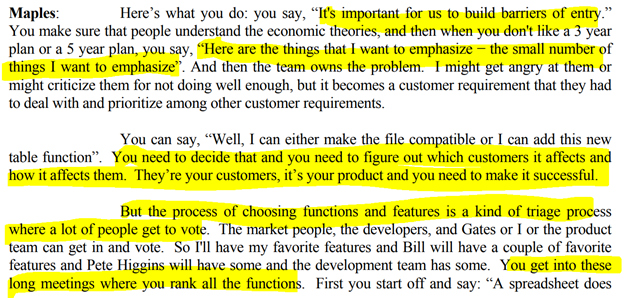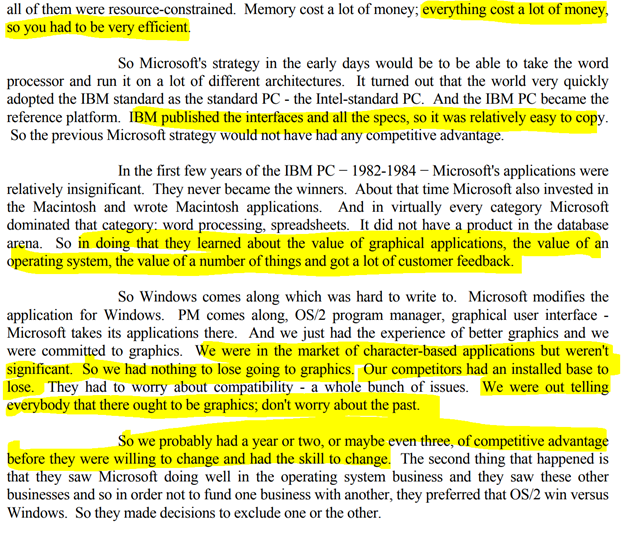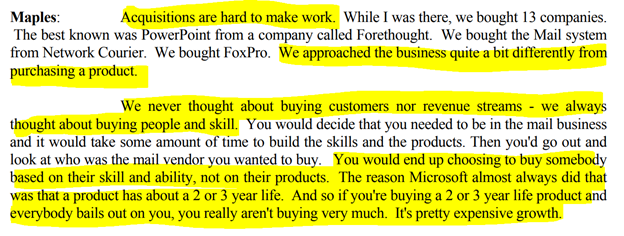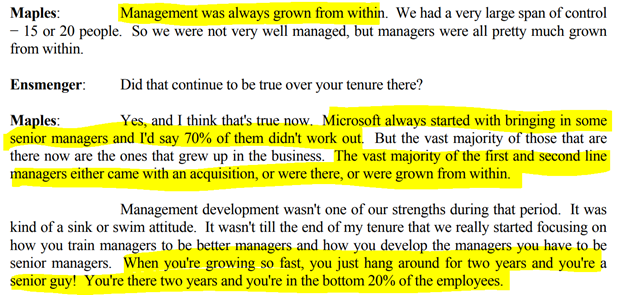1/32: After a 15+ years at IBM, Mike Maples joined Microsoft in 1988, where he was "responsible for Microsoft's transition from its awkward teenage years to its successful young adulthood"
Mike has been a fascinating person to study
Sharing some of my fav learnings below
Mike has been a fascinating person to study
Sharing some of my fav learnings below

2/ "Mike Maples has been a key architect in [MSFT's] growth and success - few business leaders could claim a better record during a similar time" - @BillGates
"It would be difficult to overemphasize how important Mike Maples was to the success of Microsoft" - @trengriffin
"It would be difficult to overemphasize how important Mike Maples was to the success of Microsoft" - @trengriffin
3/ "I have a tremendous amount of admiration and respect for [Mike Maples] and I actually think of him often whenever I think about organization maturity and scale" - @bill_bliss
"Mike Maples Sr. has been the single biggest influence in my career and life" - @m2jr
"Mike Maples Sr. has been the single biggest influence in my career and life" - @m2jr
4/ On IBM's management
"The concept was that if everybody looked out for their small piece of the business, the cumulative brainpower on all the issues would help make better decisions"
"The concept was that if everybody looked out for their small piece of the business, the cumulative brainpower on all the issues would help make better decisions"
5/ On innovating and focus in a corporation
"kept charts that he presented in his office and when somebody would come in with a new idea, he'd turn around in his chair and look at the charts and say, "Hmmm, I don't think that idea is on those charts and that's what we're doing""
"kept charts that he presented in his office and when somebody would come in with a new idea, he'd turn around in his chair and look at the charts and say, "Hmmm, I don't think that idea is on those charts and that's what we're doing""
6/ On cultural gap between IBM and Microsoft
"while IBM was trying to make software as good as it did for the big mainframes; The PC guys were just trying to get it out as fast as they could and to try to capture market share"
"while IBM was trying to make software as good as it did for the big mainframes; The PC guys were just trying to get it out as fast as they could and to try to capture market share"
7/ On differences between IBM and MSFT culture
"the most interesting thing wasn't the difference; it was the similarities. Both companies had a lot of very smart people, very focused; they believe they were doing what was right. They thought they were all on a mission"
"the most interesting thing wasn't the difference; it was the similarities. Both companies had a lot of very smart people, very focused; they believe they were doing what was right. They thought they were all on a mission"
8/ On his development process at MSFT
"I don't think it matters what process you use; I just want to make sure you use a process, that it's not a random walk"
"I don't think it matters what process you use; I just want to make sure you use a process, that it's not a random walk"
9/ More on his development process
"by developing the process, we codified the terms so that when the documentation people and the testers saw on the schedule "code complete", they all knew exactly what that meant."
"by developing the process, we codified the terms so that when the documentation people and the testers saw on the schedule "code complete", they all knew exactly what that meant."
10/ More on development process
"What we tried to do was say that development has 3 trade-offs. You had quality, function and schedule, and that quality wasn't an arguable -- it was a must"
"What we tried to do was say that development has 3 trade-offs. You had quality, function and schedule, and that quality wasn't an arguable -- it was a must"
11/ On shipping product
"instead of having to get everybody signed off before you could go forward, at Microsoft it was that you could go forward until somebody asked you to stop"
"instead of having to get everybody signed off before you could go forward, at Microsoft it was that you could go forward until somebody asked you to stop"
12/ On bundling
"The idea was to have a product offering for each environment in each category... that was a competitive advantage"
"The idea was to have a product offering for each environment in each category... that was a competitive advantage"
13/ On working top down
"how do you disintegrate products from a monolithic big product into building blocks -- instead of working from building blocks up, let's work from big products down"
"how do you disintegrate products from a monolithic big product into building blocks -- instead of working from building blocks up, let's work from big products down"
14/ On recruiting and hiring
"We required every developer to recruit, and developers would spend up to 15% of their time - usually 8-10%, but up to 15% of their time recruiting"
"We required every developer to recruit, and developers would spend up to 15% of their time - usually 8-10%, but up to 15% of their time recruiting"
15/ On reference checks
"aggressive reference checks - we had a whole series of questions we'd ask. Most people are trying to be kind and nice and so people aren't as accurate as you'd like them to be... you'd try to get them to reveal what were some of the deficiencies."
"aggressive reference checks - we had a whole series of questions we'd ask. Most people are trying to be kind and nice and so people aren't as accurate as you'd like them to be... you'd try to get them to reveal what were some of the deficiencies."
16/ On recruiting as *the* competitive advantage
"Recruiting was the key thing that we did. This is often minimized as one of our attributes but is a key reason why Microsoft was more successful than its competitors - we just hired better people. We had more, better people"
"Recruiting was the key thing that we did. This is often minimized as one of our attributes but is a key reason why Microsoft was more successful than its competitors - we just hired better people. We had more, better people"
17/ On the "un-scalability" of hiring
"To some extent it's the only way to scale - involving everybody. If you have 100 people and want to add 80 more, you better have all 100 of them recruiting... it's the only way to really stay ahead... you couldn't scale behind recruiters"
"To some extent it's the only way to scale - involving everybody. If you have 100 people and want to add 80 more, you better have all 100 of them recruiting... it's the only way to really stay ahead... you couldn't scale behind recruiters"
18/ On recruiting experienced hires
"I'd call the good people in the company and I'd say, "You know your company is downsizing and you may be next." So we were able to pull a lot of really good people out of competitors any time they had problems or something was going on"
"I'd call the good people in the company and I'd say, "You know your company is downsizing and you may be next." So we were able to pull a lot of really good people out of competitors any time they had problems or something was going on"
19/ On the meritocracy of hiring
"We took meritocracy to an extreme. Everybody was equal: there wasn't any advantage of who you knew - it was how you performed"
"We took meritocracy to an extreme. Everybody was equal: there wasn't any advantage of who you knew - it was how you performed"
20/ On Visual Basic and fostering a hacker ecosystem
"one thing where the Microsoft products had a competitive advantage over the others - it was robust enough that the people though they could really write applications"
"one thing where the Microsoft products had a competitive advantage over the others - it was robust enough that the people though they could really write applications"
21/ On barriers to entry, backwards compatibility, industry standards, and timing
"So it's an issue to manage as to when you bring it in as a competitive advantage and how well and how fast you spread it across your products."
"So it's an issue to manage as to when you bring it in as a competitive advantage and how well and how fast you spread it across your products."
22/ On barriers to entry, backwards compatibility, industry standards, and timing
"Because you're not going to change everybody on Day One, it's a closed-loop process: I am both a creator and a user of documents. And whether I'm the old guy or the new guy, I'm still both."
"Because you're not going to change everybody on Day One, it's a closed-loop process: I am both a creator and a user of documents. And whether I'm the old guy or the new guy, I'm still both."
23/ On Product Decision Making
"You need to decide that and you need to figure out which customers it affects and how it affects them. They're your customers, it's your product and you need to make it successful"
"You need to decide that and you need to figure out which customers it affects and how it affects them. They're your customers, it's your product and you need to make it successful"
24/ On Product Quality
"It's not as if you were arbitrating a feature. You're just saying that it's not acceptable for a Microsoft named product"
"It's not as if you were arbitrating a feature. You're just saying that it's not acceptable for a Microsoft named product"
25/ On Platform Focus
"We were out telling everybody that there ought to be graphics; don't worry about the past. So we probably had a year or two, or maybe even three, of competitive advantage before they were willing to change and had to skill to change"
"We were out telling everybody that there ought to be graphics; don't worry about the past. So we probably had a year or two, or maybe even three, of competitive advantage before they were willing to change and had to skill to change"
26/ On dealing with vendors
"Microsoft's technique for dealing with a vendor's emotion is to get them riled up to the point that they make emotion decisions instead of business decisions. And once they start making emotional decisions, they make bad decisions."
"Microsoft's technique for dealing with a vendor's emotion is to get them riled up to the point that they make emotion decisions instead of business decisions. And once they start making emotional decisions, they make bad decisions."
27/ On guiding principles
"we felt we had the right to go anywhere there was money to be made"
"we reserved the right to change our mind"
"we felt we had the right to go anywhere there was money to be made"
"we reserved the right to change our mind"
28/ Sometimes the strategy *is* that simple
"Our strategy was relatively easy to understand and a lot of people still hardly believe that that was the strategy"
"Our strategy was relatively easy to understand and a lot of people still hardly believe that that was the strategy"
29/ On how/why every acquisition is a talent acquisition
"We never thought about buying customers nor revenue streams - we always thought about buying people and skill"
"We never thought about buying customers nor revenue streams - we always thought about buying people and skill"
30/ On keeping the hired talent
"we would buy the company; we'd move all the employees to Redmond and then we'd take about half a development team and put them into other Microsoft areas and about half Microsoft people into their areas. And we'd try to integrate them very fast"
"we would buy the company; we'd move all the employees to Redmond and then we'd take about half a development team and put them into other Microsoft areas and about half Microsoft people into their areas. And we'd try to integrate them very fast"
31/ On management selection
"The vast majority of the first and second line managers either came with an acquisition, or were there, or were grown from within"
"The vast majority of the first and second line managers either came with an acquisition, or were there, or were grown from within"
32/ On his decision to leave and focus on future rather than past
"Instead of talking about what I did the last year, my effectiveness and so forth, what I ought to do is lay out a strategy for what we should do to prepare for me leaving"
"Instead of talking about what I did the last year, my effectiveness and so forth, what I ought to do is lay out a strategy for what we should do to prepare for me leaving"
End/ To learn for about Mike, definitely check out @trengriffin's great post "A Dozen Things I've Learned From Mike Maples Sr. About Business and Investing" https://25iq.com/2016/07/01/a-dozen-things-ive-learned-from-mike-maples-sr-about-business-and-investing/
PS/ Full oral history here: https://conservancy.umn.edu/bitstream/handle/11299/107465/oh387mm.pdf?sequence=1&isAllowed=y

 Read on Twitter
Read on Twitter